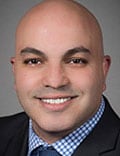A 2023 survey of 1056 women physicians revealed a troubling pattern: Despite having comprehensive medical knowledge of age-related fertility decline, 3 in 4 delayed childbearing and more than 1 in 3 experienced infertility.
The numbers, published in JAMA Network Open, tell a stark story. Physicians start families at a median age of 32 years vs 27 years among nonphysicians, according to research in JAMA Internal Medicine. This delay has real consequences — female physicians are two times more likely to experience infertility than women of reproductive age in the general population.
The problem isn’t lack of knowledge. It’s that medical training timelines directly collide with prime reproductive years, creating impossible choices that affect not just individual physicians but also patient care and healthcare workforce stability.
When Training Schedules Clash With Biology
Medical education stretches well into the third decade of life. By the time physicians complete residency and fellowship training, many are in their early to mid-thirties — precisely when fertility begins its steepest decline.

The daily realities are unforgiving. Tomer Singer, MD, board-certified in reproductive endocrinology and infertility and obstetrics and gynecology at Northwell Health in New York City, witnesses this struggle regularly. “I’ve cared for residents who came in for monitoring appointments at 6:00 AM so they could make it to rounds by 7:00,” Singer said. “I’ve helped coordinate egg retrievals around call schedules and operating room time.”
The pressure to delay childbearing comes from multiple directions. Susan B. Hudson, MD, board-certified in reproductive endocrinology and infertility and obstetrics and gynecology at the Texas Fertility Center in Corpus Christi, Texas, experienced this firsthand during her own training.
“Residency is very time-consuming, and there’s really not a lot of time for maternity leave,” Hudson said. “If you’re gone, you have to make up that time in the end. A major consideration was my colleagues and the other residents in the program because they relied on me.”
This creates a medical paradox. Physicians understand better than anyone that fertility declines significantly after 32, yet they face institutional and financial pressures that make family planning during their prime reproductive years nearly impossible. Educational debt and minimal trainee salaries compound the problem, limiting access to fertility preservation options just when they’re most needed.
The Personal and Professional Toll
The consequences extend far beyond statistics. Female physicians experience infertility two times more than women in the general population, and the JAMA Network Open survey found that nearly half the physician mothers reported passing up career advancement opportunities to accommodate family building.
The physical demands of training don’t pause for pregnancy complications. Hudson recalls a particularly difficult experience. “At one point, I did end up spending the night at the hospital in labor and delivery for monitoring. I was discharged the next morning, and I was expected to go straight to clinic to see patients, so I did.”

Professional milestones often collide with new parenthood in ways that would be unthinkable in other careers. “I was going through the process of taking my ob/gyn oral boards 4 weeks after giving birth,” Hudson said. “I had a newborn, and I was breastfeeding; this was back in 2007 when there really weren’t a lot of designated spaces to pump (breast milk).”
Sometimes, institutional policies create additional barriers. When Hudson decided to pursue in vitro fertilization for her third child, she encountered an unexpected obstacle at the practice where she worked. “They had a policy where employees were not permitted to seek fertility care with the clinic,” she said. “We elected to travel for treatment so we could continue to grow our family.”
Singer has witnessed the emotional impact on colleagues. “I’ve supported colleagues who suffered miscarriages in between cases or during long hospital shifts,” he said. “They continued working while carrying the weight of that loss, often without time to grieve or even talk about it.”
These individual struggles contribute to broader systemic problems. When physicians delay or forgo family building, it perpetuates gender disparities in medical leadership and creates retention challenges in demanding specialties.
Emerging Solutions, But Gaps Remain
Some forward-thinking institutions are starting to address these challenges. Boston IVF, Reproductive Medicine Institute, and Shady Grove Fertility have introduced discounted egg-freezing programs specifically designed for US residents and fellows, with eligibility timelines that recognize the unique constraints of medical training.
Professional boards are also adapting. The American Board of Family Medicine now allows up to 12 weeks of family leave per year without requiring training extension, a significant increase from the previous 30-day limit. The policy permits up to 20 weeks of total leave across a 3-year residency and includes provisions for hardship waivers when medical conditions arise.
But these advances remain exceptions. Most graduate medical education benefit plans still don’t cover elective fertility preservation, leaving the financial burden on physician families already struggling with educational debt. Meanwhile, some institutions maintain counterproductive policies — like Hudson’s experience with a clinic that prohibited employees from receiving fertility care at their own workplace, forcing her to travel for treatment.
The support landscape varies dramatically. Some training programs have developed comprehensive policies that include modified duty assignments, robust lactation support, and extended parental leave. Others maintain rigid schedules that offer little flexibility for family planning needs.

For some physicians, the challenges go beyond timing. Mark P. Leondires, MD, board-certified in reproductive endocrinology and founder and medical director of Illume Fertility in Norwalk, Connecticut, navigated his own complex family-building journey. “We pursued surrogacy with the help of egg donation, an incredible but highly complex journey, especially for LGBTQ+ parents,” Leondires said.
Professional organizations have begun to take notice. The American Medical Association and specialty societies have developed policy statements supporting family-friendly practices in medical training, but implementation remains inconsistent across institutions.
What’s missing is comprehensive data on what works. Systematic evaluation of existing programs and their impact on physician satisfaction and career outcomes would help guide future policy development.
Rethinking Medical Education
The solution requires fundamental changes in how medical education approaches work-life integration. Flexible residency pathways could accommodate extended training timelines for those pursuing fertility treatments or early parenthood. Technology-enabled learning offers opportunities for remote participation when in-person attendance isn’t feasible.
Standardized policies across graduate medical education programs would ensure that support doesn’t depend on geography. Essential components should include fertility preservation coverage, meaningful parental leave, comprehensive lactation support, and modified duty assignments when medically necessary.
The cultural shift may be the most important change. As Singer put it: “Medicine asks a lot of those who choose this path. But it shouldn’t ask us to give up the possibility of parenthood.”
Research priorities should include long-term studies comparing career outcomes between physicians who received family-friendly support and those who didn’t. Economic analyses could help institutions understand the return on investment in terms of physician retention and satisfaction.
Partnerships between medical institutions, fertility clinics, and professional organizations offer scalable solutions. The success of targeted programs at major fertility centers demonstrates that industry-wide initiatives are feasible.
Source link : https://www.medscape.com/viewarticle/starting-family-physician-delays-struggles-abound-2025a1000kre?src=rss
Author :
Publish date : 2025-08-05 13:10:00
Copyright for syndicated content belongs to the linked Source.














